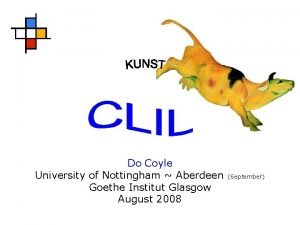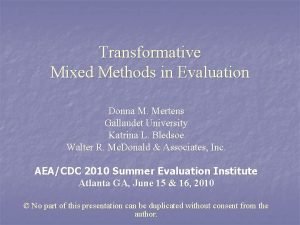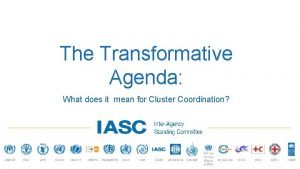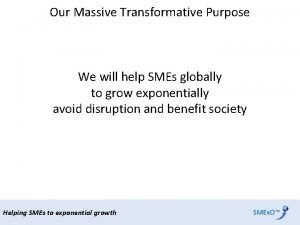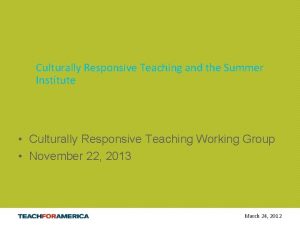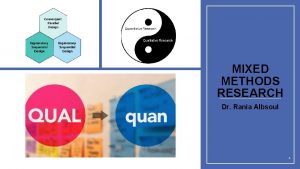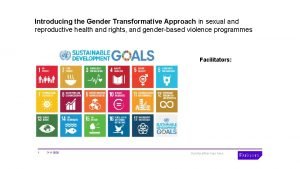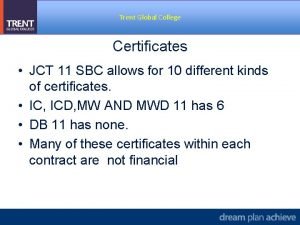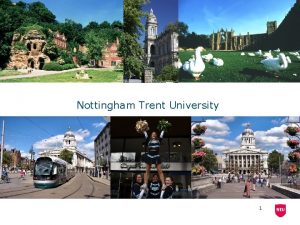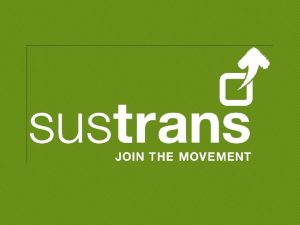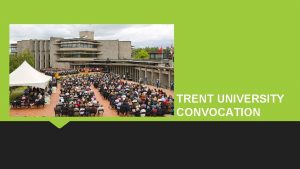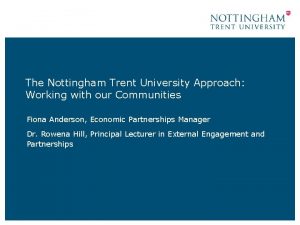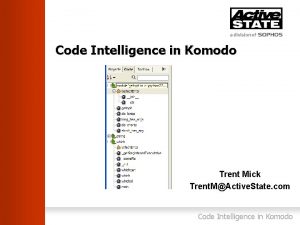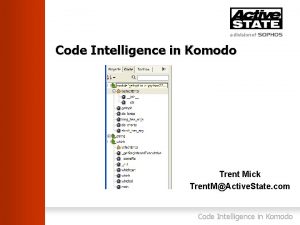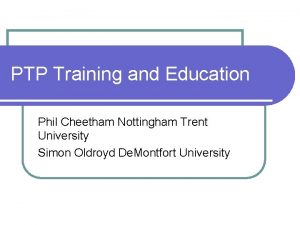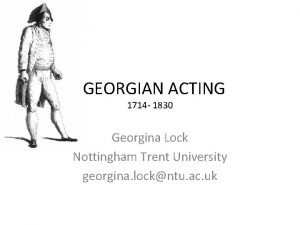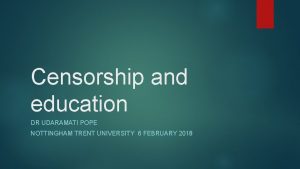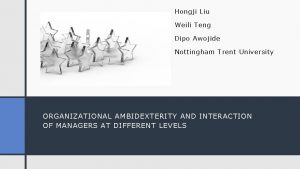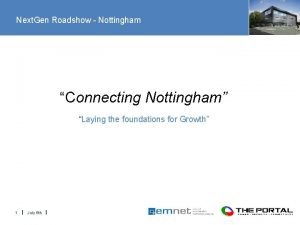NOTTINGHAM TRENT UNIVERSITY TRANSFORMATIVE STRATEGIES FOR INCLUSION NTU





















- Slides: 21

NOTTINGHAM TRENT UNIVERSITY TRANSFORMATIVE STRATEGIES FOR INCLUSION: NTU BLACK LEADERSHIP Afua Acheampong and Tiana-Maria Francis

WHO ARE WE? Afua Acheampong - VP Education, Nottingham Trent Students' Union Tiana-Maria Francis - Politics and International Relations student, Nottingham Trent University

WHAT IS THE ATTAINMENT GAP? The degree attainment gap is the difference in ‘top degrees’ – a First or 2: 1 classification – awarded to different groups of students. (Advance. HE, 2020)

WHAT IS THE ATTAINMENT GAP? While overall proportions receiving a First or 2: 1 have increased over the past decade, there continues to be a considerable gap between the proportion of white British students receiving these degree classifications compared to UKdomiciled students from minority ethnic groups In 2015/16, the gap was largest in England, where 78. 8% of white qualifiers received a first/2: 1 compared with 63. 2% of BME qualifiers – a 15. 6 percentage point gap. In contrast, the BME attainment gaps in Scotland Wales were 8. 6 and 8. 5 percentage points, respectively.

"BME Attainment at Nottingham Trent University" Research into BME student experience and the effect that racial inequality has on their attainment 2019 insight report University-wide research Qualitative Research Core factor for NTU joining Advance HE's Race Equality Charter Led to organisational and institutional policy development

Factors within HE It is integral to acknowledge that each institution, department, faculty and even school is working within its own ‘landscape’ Racism and Microaggressions Lack of representation Lack of knowledge Uncomfortable conversations Sense of belonging Equality Change Unit, Improving the degree attainment of black and minority ethnic students (Report) 84% of HEIs identified BME students as a target group for access to HE, “only about half of these institutions (57, 44%) were sensitive to the retention, achievement and progression of these groups”

Implications of this gap Post-university employment Continued study/under-representation in academia Social inequalities Disillusionment of the next generation Undermining of university values and mission

TURNING PAPER TO PRACTICE There is a lot of interest and research in this area and various different views on how to tackle the attainment gap. Issues and solutions will vary depending on the culture of each institution, but generally: • The degree attainment gap has persisted for at least the last decade, and it will require a variety of different initiatives and approaches to address entrenched racial inequalities • Any initiatives or actions are likely to take time to have any significant impact. In implanting actions, institutions will need to be patient and commit to long-term resourcing • Students must be at the centre of any actions that are taken. Students should be partners in addressing the gap and involved in the discussions from the beginning. • Action needs to focus on institutional barriers and inequalities, rather than ‘improving’ or ‘fixing’ the student. Traditionally the language of the attainment gap has focused on students’ underachievement or lack of attainment, whereas it should focus on the institutional culture, curriculum and pedagogy.

UNDERSTANDING BLACK LEADERSHIP Leadership programme for students More needs to be done to encourage BME females into leadership positions both in the Univeristy and beyond NTU Community Research best practice from other institutions as to how they have been able to incorporate cultural communities and / or create a greater sense of belonging for their diverse students. Mentoring Opportunities need to be available for students from underrepresented groups to have support and guidance on how to do well Interventions These may help students fulfil their potential for attainment. These could be facilitated through NTU's dashboard. These must be approached with sensitivity. Conversations around race & culture Institutions need to consult students and lead conversations around race and culture. Academics are often uncomfortable addressing race and students mirror this. There needs to be opportunities to talk about race, racism and the gap. There needs to be a clear institutional message that issues of race are embedded within strategic goals and the campus culture should reflect this.


Project Aims and Objectives The project aims are to provide positive outcomes for black students through belonging, empowerment and entitlement & mattering For the pilot year, 40 UG black 2 nd & final year students were recruited. These students were either low or partially engaged according to the NTU dashboard data. Looking at the data, 600 FT and PT students emerged across all 9 schools. These students were targeted via email & direct mail and were invited to express interest and apply for the scheme.

PROGRAMME LAUNCH

PROGRAMME OF ACTIVITY GRIT Workshop Day Delivered by GRIT, a day-long workshop to enable participates to create community and safe spaces to explore belonging, empowerment, entitlement and mattering Mentoring Students are individually matched to industry/professional BME experts as mentors. Students were matched based on discipline and future aspirations Inspirational Speaker and Speed Mentoring NTU Staff, Alumni and Community members invited to speak about their journey followed by a networking session Leadership & Mindset Development Workshop Delivered by Elaine Powell. This is a highly interactive training programme designed for future leaders to discover what they are capable of achieving, what stands in the way of them performing to their best abilities, how to bring the best out of others and themselves by equipping them with the tools to be unstoppable in their role. During the session, the trainer will introduce mindset disciplines. Participants will be posed challenging questions, discussions of real-life scenarios that will take them out of their comfort zone and discover new things about what is possible. The leaders will experience a new-found freedom, self-expression and power in themselves.

International Exchange In collaboration with NTU Global, participants had the opportunity to take part in a European exchange trip to Leiden University and Utrecht University and work with ECHO (Expertise Centre for Diversity Policy). This trip seeks to enable participants to forge international links and introduce the options of studying/living abroad in the future. Funding will cover train or flights, transfers as well as accommodation.

ONLINE FORUM In collaboration with the Diversity Office at Leiden University, ECHO: Center for Diversity Policy and Utrecht University respective students are invited to discuss leadership, authentic representation and crisis management. Originally planned as a four-day program to develop black leadership and encourage knowledge exchange among students in Nottingham, Leiden and Utrecht, we want to provide a digital forum to share knowledge, experiences and strategies in this specific historical moment. The objectives of this forum will also provide safe spaces for these students to share experiences and have the opportunity to influence policy, both nationally and internationally. The inequities and societal issues in relation to global higher education that students are facing due to Covid-19 have not emerged, but were ever present before the pandemic. These inequities have aggravated and became more visible and prominent through the impact of the current crisis, creating spaces for dialogue and exchange in relation to transformation in a time of unforeseen circumstances. These sessions focus on enhancing leadership development among students and aspire to invoke capacity building for and by students focusing on the following dimensions: • Insights and Understanding Structural Exclusion • Personal Development and Leadership • Turning insights and leadership into concrete action

CHALLENGING MERITOCRACY AND WHITE CENTRALITY Black Leadership Programme Listening Forum Nottingham Trent University’s Vice Chancellor has recently met with participants to gain greater insight into the experiences of Black students at the institution and discussed how student voice should be the centre of progressive change. • • • Life on campus as a black student How can we improve a sense of belonging? Reporting racism What data should we share? How can we increase representation?

1. Has the Black Leadership Programme contributed to an increase in participants’ sense of belonging, empowerment, entitlement and mattering? 2. How does the Black Leadership Programme support participants? a. What can be done in the future to better support participants? 3. What impact does the Black Leadership Programme have on leadership skills? EVALUATION Following a Theory of Change approach, the evaluation focused both on the process and the outcome of the programme. The main aim is to track the impact of the programme on participants’ leadership attitudes (i. e. empowerment, belonging, entitlement and mattering), but also to provide process feedback from participants in terms of what worked and whether their expectations were met.

LOGIC MODEL INPUTS

TIANA-MARIA FRANCIS STUDENT PERSPECTIVE

SO WHAT CAN YOU DO? Diversity Conversations Time

KEEP IN TOUCH linkedin. com/in/afuanacheampong/ linkedin. com/in/tiana-maria-irwin 942319151/ afua. acheampong@su. ntu. ac. uk tiana. irwin 2016@my. ntu. ac. uk
 Trent university campus
Trent university campus University of nottingham parking
University of nottingham parking University of nottingham
University of nottingham Mertens transformative paradigm
Mertens transformative paradigm Transformative agenda meaning
Transformative agenda meaning Massive transformative purpose examples
Massive transformative purpose examples Transformative resistance
Transformative resistance Derivative vs transformative
Derivative vs transformative Institute for transformative technologies
Institute for transformative technologies Transformative paradigm definition
Transformative paradigm definition Operation transformation process
Operation transformation process Albsoul
Albsoul Transactional leadership and transformational leadership
Transactional leadership and transformational leadership What is transformation process in operations management
What is transformation process in operations management Gender-transformative
Gender-transformative Trent hoover wrestling
Trent hoover wrestling Trent global college
Trent global college Trent 700 engine diagram
Trent 700 engine diagram The final decrees of the council of trent
The final decrees of the council of trent Trent global college review
Trent global college review What were the final decrees of the council of trent
What were the final decrees of the council of trent Trent 2018
Trent 2018


